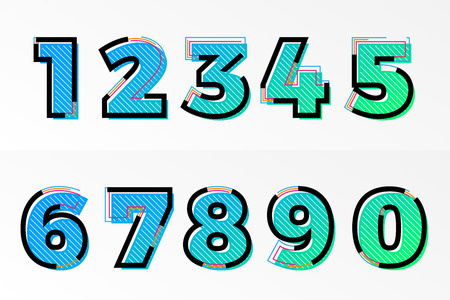Introduction: Astrology’s British Revival
Astrology has always had a peculiar place in British culture—somewhere between the pages of tabloid horoscopes and the hallowed halls of ancient academia. Yet, in recent years, there’s been a noticeable revival sweeping across the UK. From London’s trendy bookshops to online communities stretching from Manchester to Edinburgh, more Britons are rediscovering astrology with fresh eyes and open minds. This contemporary renaissance is not just about checking your star sign before a big meeting; it’s about delving deeper into astrological practice, with particular curiosity around the house systems—a subject that has always been shrouded in mystery and, frankly, a fair bit of confusion.
Despite astrology’s growing popularity, the concept of astrological houses often remains misunderstood or glossed over in British discourse. Many newcomers—and even seasoned enthusiasts—find themselves tangled in myths and misconceptions about what these houses actually represent and how they function within a chart. Are they strictly predictive tools? Do they only matter for certain signs? And why do so many astrologers disagree about which house system is “correct”? These questions swirl through cafés and online forums alike, highlighting a collective hunger for clarity amid the cosmic noise.
This renewed interest provides an ideal opportunity to untangle some of the most common misconceptions surrounding astrological houses in the UK. By exploring their origins, evolving interpretations, and relevance in modern British practice, we can demystify this foundational aspect of astrology—and perhaps discover why our fascination with the stars remains as enduring as ever on this side of the Channel.
2. What Are Astrological Houses – Busting the Basics
If you’ve ever glanced at a birth chart and felt utterly bamboozled, you’re not alone—especially here in the UK, where astrology might feel like it’s stuck between pub banter and a proper academic debate. Let’s set the record straight about astrological houses, clearing up those classic confusions between signs, planets, and houses with some down-to-earth British analogies.
The Three Pillars: Signs, Planets, and Houses
First things first: think of your birth chart as a West End stage production. The planets are the actors—each has its own personality and motivation. The signs are their costumes and styles—the flair with which they deliver their lines. But what about the houses? These are the scenes or settings: the specific arenas of life where the action unfolds. Mixing these up is like confusing Shakespeare’s Hamlet with the Globe Theatre itself—a rookie mistake!
Quick Reference Table: Who Does What?
| Element | British Analogy | Role in Astrology |
|---|---|---|
| Planets | The Actors (e.g., Dame Judi Dench) | The ‘what’ or driving force (e.g., emotion, communication) |
| Signs | The Costumes/Acting Styles (e.g., method acting vs. slapstick) | The ‘how’ – flavour and approach (e.g., bold, meticulous) |
| Houses | The Scenes/Settings (e.g., tea room, football pitch) | The ‘where’ – areas of life (e.g., career, relationships) |
Why Do Houses Matter to Brits?
Here in Britain, our lives are often shaped by context: whether it’s the family home in Kent, your job in Manchester, or friendships forged at university in Edinburgh. Astrological houses reflect this same diversity of experience—they pinpoint where planetary energies show up in your personal story. The first house is often likened to your front door—how you greet the world—while the tenth house might be your professional reputation, much like having your name above the shop on a bustling high street.
Avoiding Common Slip-Ups
A key misconception is thinking houses and signs are interchangeable. For example, saying “I’m a Leo Rising so my whole first house is Leo” ignores that house systems can vary—and not every Brit fits neatly into a single stereotype! Similarly, planets don’t rule houses—they simply express themselves there, much like how a cricketer adapts their game depending on whether they’re playing at Lord’s or Old Trafford.
Bottom Line: Setting Up Your Chart Like a True Brit
If you want to read an astrological chart as smartly as you’d decipher a London Tube map, remember: houses are locations, signs are vibes, planets are players. Keep these roles clear in your mind, and you’ll never mistake your cosmic living room for someone else’s kitchen again.

3. Myth: Houses are the Same Everywhere
One of the most persistent myths in astrology is that house interpretations are fixed and universal, regardless of where you live. In practice, this simply doesn’t hold water—especially in the UK, where both cultural nuances and geographic location play a significant role in shaping astrological readings.
The British Context: More Than Just Coordinates
It’s tempting to assume that your astrological houses will mean the same thing whether you’re in London, Glasgow, or New York. However, the reality is far more layered. In the UK, centuries of local tradition, folklore, and even weather patterns subtly inform how astrologers interpret the houses. For example, the concept of “home” (4th house) might evoke notions of heritage and ancestral land in rural England, while urban dwellers may relate it more to shared living spaces or family history shaped by migration.
Latitude Matters – Not Just Spiritually
Britain’s northern latitude also influences chart calculations. The further north you go, the more stretched or compressed certain houses become when using systems like Placidus. This technical quirk means an astrologer in Edinburgh might produce very different house placements for the same birth time than one in Athens. Understanding this geographical reality is crucial for accurate readings.
Cultural Filters on House Meanings
Modern British astrologers often weave local narratives into their practice. The 10th house of career, for instance, may be interpreted with reference to Britain’s class-consciousness or changing attitudes towards work-life balance post-Brexit. Likewise, spiritual beliefs linked to Druidic or Celtic traditions sometimes colour interpretations of the 12th house.
Ultimately, while the structure of astrological houses remains consistent worldwide, their interpretation is anything but generic. To read a birth chart through a truly British lens is to recognise how place, history, and culture shape every layer of meaning—a far cry from a one-size-fits-all approach.
4. The Twelve Houses – Don’t Believe the Hype
Let’s set the record straight: the twelve astrological houses aren’t a cosmic version of “Location, Location, Location.” Too often, British astrology enthusiasts are sold ideas that sound more like horoscopes from tabloid sidebars than nuanced wisdom. Each house is far more layered than the stereotypes suggest. Below, we unravel these myths using distinctly UK-flavoured examples and a dash of dry wit to help you spot textbook twaddle when you see it.
| House | Common Myth | UK Reality Check |
|---|---|---|
| 1st (Self) | You’re destined for celebrity status. | Most Brits with a stacked first house still queue politely for the bus and worry about their MOT. |
| 2nd (Money) | This house means you’ll be filthy rich. | For many, it’s more “Sainsbury’s basics” than Fortnum & Mason hampers—think budgeting apps, not secret Swiss accounts. |
| 3rd (Communication) | You’re a born chatterbox. | It could just mean you’re excellent at passive-aggressive emails or have an encyclopaedic knowledge of pub quizzes. |
| 4th (Home) | Your childhood was idyllic. | The reality? More likely a semi in Croydon than a Downton Abbey estate—plus family WhatsApp drama galore. |
| 5th (Creativity) | You’ll be an artistic genius. | Translation: You might just win the local bake-off or knit a passable scarf for your nan. |
| 6th (Work/Health) | You’re a workaholic or health guru. | If only NHS waiting times and office tea rounds counted as healthy habits! |
| 7th (Partnerships) | Your soulmate is guaranteed. | Sometimes it’s more “awkward Tinder dates” than fairy-tale endings—just ask anyone in London on a Friday night. |
| 8th (Transformation) | You’ll face epic life-or-death drama. | Often, it’s just a council tax bill or finally decluttering the attic after ten years of procrastination. |
| 9th (Philosophy/Travel) | You’re destined to become a world traveller or sage. | Might simply mean binge-watching David Attenborough and dreaming of Cornwall rather than Kathmandu. |
| 10th (Career) | You’ll be Prime Minister or CEO material. | The reality: surviving office politics and having your boss remember your name is achievement enough for most Brits. |
| 11th (Friendships) | You’ll have endless mates and social power. | Cue the group chat that never meets up in real life—classic British reluctance to commit to plans! |
| 12th (Subconscious) | You’re haunted by secrets or mystical powers. | Mainly means being good at keeping secrets—like where you actually bought those biscuits everyone loves at work. |
In short, don’t let generic interpretations box you in. Astrological houses are influenced by culture, history and your own lived experience. Here in the UK, they reflect everything from our understated ambition to our obsession with weather small talk. So next time someone throws textbook astrology at you, remember: sometimes, it’s less Hogwarts and more Hackney—and that’s absolutely fine.
5. Modern Practice: How UK Astrologers Really Use Houses
The landscape of astrological practice in the UK is a fascinating tapestry where tradition meets innovation. Contrary to the myth that British astrologers are strictly bound by old-school doctrines, many contemporary practitioners now blend classic house systems with fresh perspectives, making astrology more relevant to modern lives.
Embracing Both Tradition and Innovation
While traditional systems like Placidus and Equal House remain popular, it’s increasingly common to see British astrologers experimenting with alternatives such as Whole Sign or even hybrid approaches. This isn’t just about following trends from abroad—UK astrologers are actively debating which methods best reflect the lived experiences of their diverse clientele, from London’s multicultural communities to rural Cornwall. The result? A uniquely British approach that honours heritage while remaining open-minded and adaptable.
Local Flavour: Tailoring Readings for UK Life
Modern British astrology is very much in tune with its local context. Many practitioners incorporate references to British social realities—from the nuances of council flat living (often linked with fourth house themes) to career dynamics shaped by the ever-changing job market (tenth house focus). There’s also a growing recognition of non-traditional family structures and career paths, prompting astrologers to reinterpret houses in ways that resonate with the UK’s shifting cultural landscape.
Unexpected Trends and Evolving Practices
Surprisingly, some younger UK astrologers are revisiting medieval techniques and integrating them with psychological insights—a blend that wouldn’t have been imaginable even a generation ago. Social media platforms have played a part too, fostering vibrant discussions about everything from intercepted houses to whole sign revolutions. Moreover, there’s a noticeable trend towards collaborative readings, where clients’ own interpretations are welcomed into the process—an approach that reflects Britain’s reputation for valuing individuality and dialogue.
Ultimately, today’s UK astrology scene is marked by its willingness to experiment, adapt and converse with both its past and present. This modern practice not only debunks the myth of rigid orthodoxy but positions British astrologers at the cutting edge of global astrological thought.
6. Real Talk: Limitations and Healthy Skepticism
While astrology has enjoyed a renewed popularity across the UK—spanning from London’s cosmopolitan circles to indie bookshops in Manchester—it’s crucial to approach astrological houses with a pinch of British scepticism. Let’s put the kettle on and have an honest chat about where house-based astrology can fall short, and why critical thinking is essential in modern practice.
The Limits of House Systems
The most significant limitation lies in the sheer diversity of house systems themselves. Placidus, Equal House, Whole Sign—the list goes on, and each can give you different interpretations for the same birth chart. This isn’t just an academic squabble; it means that two astrologers in Brighton might offer contrasting readings for your tenth house career prospects. The lack of consensus can leave even the keenest star-gazer feeling a tad adrift.
Cultural Context: The British Perspective
In the UK, there’s often a preference for evidence-based approaches—think of our love for “proof” in everything from tea-making to politics. Many Brits are naturally inclined to ask: “Does this really work?” or “Is there actual proof behind this?” That’s a healthy instinct, especially given astrology’s subjective nature and the historical baggage it carries from both mysticism and pop culture.
Healthy Scepticism in Practice
Modern astrologers across Britain increasingly encourage clients to treat house interpretations as signposts rather than fixed predictions. It’s perfectly reasonable—and, dare we say, rather British—to question broad statements like “your fourth house means you’ll inherit property.” Instead, many practitioners now advocate blending tradition with personal reflection, using astrology as a tool for self-inquiry rather than deterministic fortune-telling.
A Middle Ground: Critical Engagement
This is where critical engagement comes into play. By questioning assumptions, comparing different house systems, and cross-referencing with real-life experience, UK astrology enthusiasts can avoid falling into fatalistic traps. After all, a bit of debate down the pub or over a cuppa never hurt anyone—and it might just lead to more nuanced insights about yourself and your place in the cosmos.
In sum, while astrological houses offer fascinating frameworks, their limitations demand a thoughtful approach—one that balances openness with rigorous inquiry. Embracing healthy scepticism doesn’t mean dismissing astrology altogether; rather, it invites us to engage with it intelligently and authentically, in true British fashion.
7. Conclusion: Towards a Nuanced British Astrology
As we wrap up our exploration of astrological houses in the UK, it’s clear that the landscape is far more intricate than popular mythologies would have us believe. The enduring clichés—whether about class, fate, or personality—often miss the vibrant diversity and evolution happening within British astrology today. We must resist the temptation to accept tidy soundbites or tabloid stereotypes. Instead, we are called to approach astrology with curiosity, discernment, and an openness to complexity.
Modern practice in the UK reflects a fascinating blend of tradition and innovation, shaped by local culture but never static. Astrological houses have been reinterpreted through regional histories, psychological frameworks, and even postcolonial perspectives. British astrologers and enthusiasts alike are increasingly willing to question inherited assumptions, challenge imported dogmas, and seek a more authentic connection with their personal charts.
To truly engage with astrology here means moving beyond superficial readings—no more assuming that “the twelfth house always spells doom” or that house meanings are set in stone from some ancient text. It means asking deeper questions: How do these symbols resonate with my lived experience? What does my context—my community, my city, my heritage—add to my understanding of these houses?
By embracing this nuanced approach, we not only deepen our individual journeys with astrology but also enrich the collective conversation. Let’s encourage one another to look past old myths, experiment thoughtfully with new interpretations, and ultimately weave a uniquely British tapestry of astrological wisdom—one rooted in both respect for tradition and a spirit of ongoing discovery.


